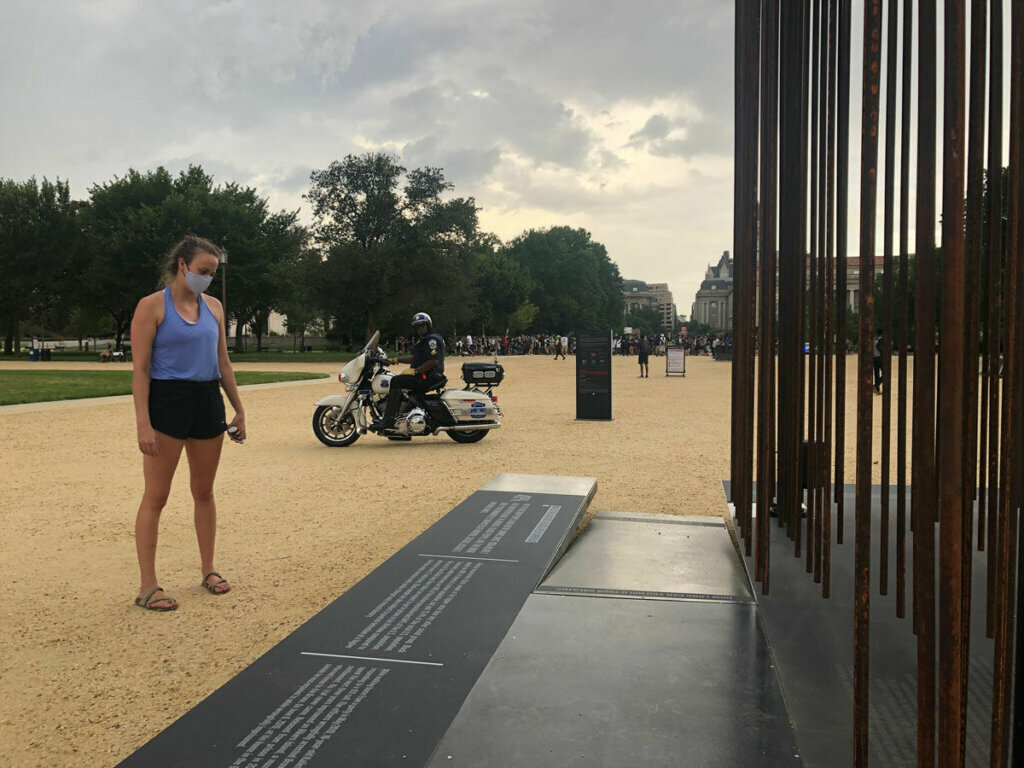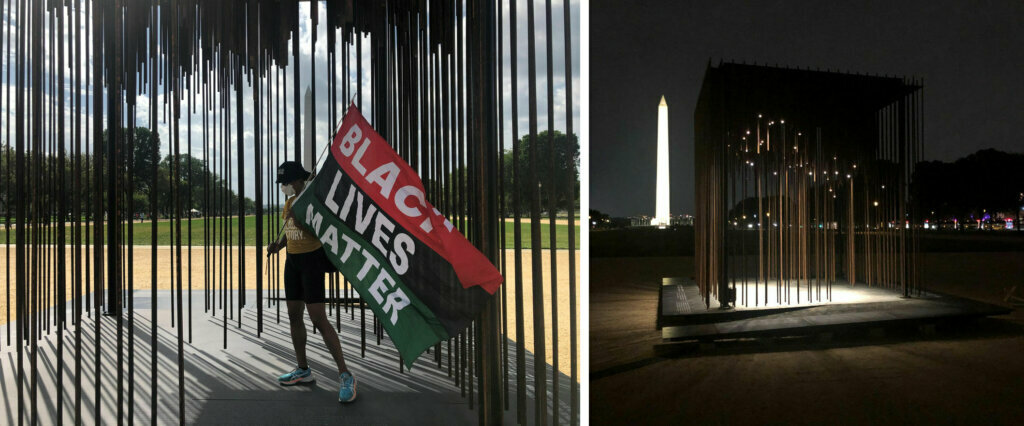
The Smithsonian museums may be closed during the COVID-19 pandemic, but a new installation meant to spark discussion and reflection on race in the U.S. is now open on the National Mall.
Called “Society’s Cage,” the installation is an open cube sculpture visitors can walk into and, as its architect describes, it’s entirely symbolic.
“The form and shape of the pavilion is a physical representation of racist institutional structures that have acted historically to compromise true equity and fairness in our society,” said Dayton Schroeter, who conceptualized and built the installation.
The idea to create the installation came about among a group of diverse architects at the Smith Group following the police killings of George Floyd and Breonna Taylor, Schroeter said.

The facades of the structure, constructed of weathered steel bars, are actually bar graphs of statistical data, he added.
“The cage is based on facts and not opinion, so if you are uneasy with the cage, that means you are uneasy with the truth. We have taken something very ugly and rendered it in a beautiful way,” Schroeter said.
The pavilion is designed to teach and build empathy in two interpretive layers, starting with the educational component, he said.
The second layer is a participatory experience where visitors who step inside the cube are invited to hold their breath, in reference to how Floyd’s airway was cut off by a Minneapolis police officer.
“The imperfect cube is a symbol of undue justice and harm in our society,” Schroeter said. “The void is a symbolic representation of the systemic forces that devalue and compromise Black life in our society, and facades of the pavilion are bar graphs of statistical data that describe how the African-American experience has been impacted by these institutional structures of state violence.”








